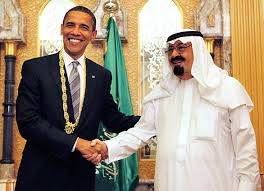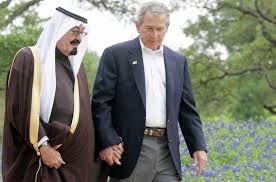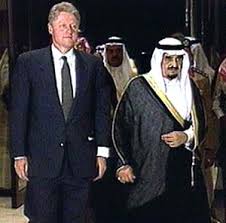IN ORDER TO write or edit works about Islam intelligently, writers and editors must be familiar with some basic Islamic terms. My glossary here will be the AP Stylebook (2014). I am using this stylebook because it is the most up-to-date resource that I have. (A 2015 edition is in the mail!) However, while the AP Stylebook is the most current resource, some definitions are too brief or contain errors. So I will provide some added commentary in brown type. However, the AP Stylebook is updated every year, so it never goes out of style!
YOU WILL also notice that many important Islamic words and phrases discussed in my Editing Islam posts are not here. Maybe in a future post …
The entry under the term Islam in the Religions Section of the AP Stylebook has a good basic overview of the faith and some statistics about Islam. It is interesting that the AP’s general definition of Islam uses the term “Allah (God),” while the specific AP definition of Allah discourages the use of that term, as it is just the Arabic word for God.
WITHOUT FURTHER ADO, here are the AP definitions in the Religions Section:
 Al-Aqsa The mosque completed in the eighth century atop the Haram al-Sharif, or Noble Sanctuary, in the old city of Jerusalem. … Arabs also use Al-Aqsa to refer to the whole area, which houses the Dome of the Rock shrine too. To Jews the area is known as the Temple Mount, the site of the ancient Jewish temples.
Al-Aqsa The mosque completed in the eighth century atop the Haram al-Sharif, or Noble Sanctuary, in the old city of Jerusalem. … Arabs also use Al-Aqsa to refer to the whole area, which houses the Dome of the Rock shrine too. To Jews the area is known as the Temple Mount, the site of the ancient Jewish temples.
Allah The AP term is discussed above, as well as in many of my Editing Islam blog posts.
Allahu Akbar The Arabic phrase for “God is Great.”

 Ashoura The Shiite Muslim commemoration marking the death of Hussein, the grandson of the Prophet Muhammad [and son of Ali] at the Battle of Karbala in present-day Iraq in the seventh century. Shiite Women wail and mourn and men flagellate themselves until they are bloody to commemorate the death of Hussein.
Ashoura The Shiite Muslim commemoration marking the death of Hussein, the grandson of the Prophet Muhammad [and son of Ali] at the Battle of Karbala in present-day Iraq in the seventh century. Shiite Women wail and mourn and men flagellate themselves until they are bloody to commemorate the death of Hussein.
 Burqa The all-covering dress worn by some Muslim women. Also, burka.
Burqa The all-covering dress worn by some Muslim women. Also, burka.
Eid al-Adha Meaning the “Feast of Sacrifice,” the most important Islamic holiday marks the willingness of the prophet Ibraham (Abraham to the Christians and Jews) to sacrifice his son. During the holiday, which in most places lasts four days, Muslims slaughter sheep or cattle, distribute part of the meat to the poor and eat the rest. … This holiday occurs … during the annual hajj pilgrimage to Mecca.
Eid al-Fitr The three-day holiday marking the end of Ramadan, Islam’s holy month of fasting.
 Hajj The pilgrimage to Mecca required of every Muslim who can afford it. [Another exception is those who are unable to make the pilgrimage due to their health. Note: I generally see Hajj uppercased. As Hajj is one of the pillars of Islam, I think capitalization is due. The two Eids are capitalized, so why not Hajj?]
Hajj The pilgrimage to Mecca required of every Muslim who can afford it. [Another exception is those who are unable to make the pilgrimage due to their health. Note: I generally see Hajj uppercased. As Hajj is one of the pillars of Islam, I think capitalization is due. The two Eids are capitalized, so why not Hajj?]
halal The Arabic word for “permitted” or “lawful.” The word is used to describe foods allowed under Islamic dietary laws. Always lowercase. [Note: Halal is used in many other contexts than just food.]
 hijab The headscarf worn by Muslim women. [The term hijab means cover or covering or veil. The interpretation of just what must be covered is a discussion for another post. Reza Aslan defines it as “The Muslim practice of veiling and seclusion of women.”]
hijab The headscarf worn by Muslim women. [The term hijab means cover or covering or veil. The interpretation of just what must be covered is a discussion for another post. Reza Aslan defines it as “The Muslim practice of veiling and seclusion of women.”]
iftar The breaking of the daily fast during the holy Islamic month of Ramadan.
imam Lowercase when describing the leader of prayer in a Muslim Mosque. Capitalize before a name when used as a formal title for a Muslim leader or ruler. [This term means different things to different Muslims. It is very important to Shi’ites. Reza Aslan, in No god but God (Random House 2005), defines imam in Shi’ite Islam as “the divinely inspired member of the community.” This book is my favorite book about Islam, and I recommend it in my Book Recommendations post].
Islam I won’t give you the entire entry here, but will pick out something interesting. The entry has the names of different Islamic clerics:
Imam [See entry above.]
Grand Mufti: The highest authority in Quranic law and interpretation, a title used mostly by Sunnis. [I have never heard of this term, so it may not be pervasive. But what do I know?]
Sheik Used in the same manner as the Rev. [the Reverend] is used as a Christian title, especially common among Sunnis. (Not all sheiks are clergymen. Sheik can also be a secular title of respect or nobility.)
 Ayatollah Used by Shiites, especially in Iran, to denote senior clergymen, such as Ayatolla Ruhollaha Khomeini.
Ayatollah Used by Shiites, especially in Iran, to denote senior clergymen, such as Ayatolla Ruhollaha Khomeini.
Mullah Lower level clergy.
Islamist An advocate or supporter of a political movement that favors reordering society in accordance with laws prescribed by Islam. … Those who view the Quran as a political model encompass a wide range of Muslims, from mainstream politicians to militants known as jihadi.
 jihad Arabic noun used to refer to the Islamic of the struggle to do good. In particular situations, that can include holy war, the meaning extremist Muslims commonly use. [Note: See my Editing Islam posts on the meaning of jihad. Christians invented the word “Holy War” during the crusades.]
jihad Arabic noun used to refer to the Islamic of the struggle to do good. In particular situations, that can include holy war, the meaning extremist Muslims commonly use. [Note: See my Editing Islam posts on the meaning of jihad. Christians invented the word “Holy War” during the crusades.]
Koran Use Quran in all references except when preferred by an organization or in a specific title or name.
 Muhammad The chief prophet and central figure of the Islamic religion, Prophet Muhammad. Use other spellings only if preferred by a specific person for his own name or in a title or the name of an organization. [Note: Muslims usually say “peace be upon him” when speaking Muhammad’s name. I have heard this shortened to “PBUH.”]
Muhammad The chief prophet and central figure of the Islamic religion, Prophet Muhammad. Use other spellings only if preferred by a specific person for his own name or in a title or the name of an organization. [Note: Muslims usually say “peace be upon him” when speaking Muhammad’s name. I have heard this shortened to “PBUH.”]
mullah An Islamic leader or teacher, often a general title of respect for a learned man.
 Muslims The preferred term to describe adherents of Islam. The term black muslim has been used in the past to describe members of predominately African-American Islamic sects that originated in the United States. However, the term is considered derogatory. [Many well-known African Americans, including Malcolm X and Muhammad Ali were members of this sect (“The Nation of Islam”) at some point in their lives. However, Malcolm X converted to regular Sunni Islam after making the Hajj. Many believe that members of the Nation of Islam were involved in his assassination.]
Muslims The preferred term to describe adherents of Islam. The term black muslim has been used in the past to describe members of predominately African-American Islamic sects that originated in the United States. However, the term is considered derogatory. [Many well-known African Americans, including Malcolm X and Muhammad Ali were members of this sect (“The Nation of Islam”) at some point in their lives. However, Malcolm X converted to regular Sunni Islam after making the Hajj. Many believe that members of the Nation of Islam were involved in his assassination.]
 Nation of Islam The nationalist religious movement … called for racial segregation. Elijah Muhammad took over leadership in 1934, holding this post until his death. A son, Warith (Wallace) Dean Muhammad, succeeded to the leadership and pointed the movement towards integration and traditional Islam. Louis Farrakhan led a militant faction into a separatist movement in 1976. … Use the title minister on first reference to clergymen: Minister Louis Farrakhan.
Nation of Islam The nationalist religious movement … called for racial segregation. Elijah Muhammad took over leadership in 1934, holding this post until his death. A son, Warith (Wallace) Dean Muhammad, succeeded to the leadership and pointed the movement towards integration and traditional Islam. Louis Farrakhan led a militant faction into a separatist movement in 1976. … Use the title minister on first reference to clergymen: Minister Louis Farrakhan.
 niqab The veil worn by the most conservative Muslim women, in which, only the eyes show. [One might mention here that in the burka, the whole face is covered by mesh-like material, including the eyes. Therefore, it seems like the burka is most conservative dress. Compared to the burka, I find the niqab kind of alluring.]
niqab The veil worn by the most conservative Muslim women, in which, only the eyes show. [One might mention here that in the burka, the whole face is covered by mesh-like material, including the eyes. Therefore, it seems like the burka is most conservative dress. Compared to the burka, I find the niqab kind of alluring.]
OK PEOPLE KEEP WITH ME, WE ARE ALMOST DONE!
Ramadan The Muslim holy month, marked by daily fasting from dawn to sunset, ending with the Islamic holiday of Edi al-Fitr. Avoid using holiday on second reference.
Shariah Islamic law. [Learned scholars of the Quran, Sunnah, and hadith are called the Ulama. They study particular issues submitted to them and then provide an answer. This answer is used by religious leaders and by judges who decide individual cases involving Sharia. The Sharia legal system has developed over the centuries and is just as rich and nuanced as what Westerners call “common law.” See Khaled Abou El Fadl, Speaking in God’s Name (2005) in Recommended Books post.]
Shiite The spelling for this branch of Islam. Plural is Shiites. The alternate spelling Shia is acceptable in quotes. [Other usages use the apostrophe: Shi’ite, Shi’a.]
Wahhabi Followers of a strict Muslim sect that adheres closely to [their version] of the Quran; it’s most powerful in Saudi Arabia. [Our oil-rich Saudi “allies” funnel support to Wahhabi-like schools, militias (like ISIS) and governmental bodies and other organizations all across the Middle East, thereby spreading more of “their” kind of Islam, which certainly does NOT follow the Quran in many ways. We overlook it because we need their oil.
In effect, our blind submission and foreign aid to Saudi Arabia created ISIS. See photos below. Sorry I just had to get my two cents in somewhere!]
How can Hillary Clinton hob-nob with leaders of a country that doesn’t allow women to drive and prescribes 100 lashes or stoning of women for adultery? Ah yes, American foreign policy …
- allah
- allahu akbar
- AP Stylebook
- Arabic
- ashoura
- bible
- blog
- books
- burka
- burqa
- charlie hebdo
- christian
- christians
- copy editing
- copy editor
- copyediting
- copyeditor
- covering
- depict
- editing
- editing islam
- editor
- Eid al-Adha
- Eid al-Fitr
- faith
- god
- Grand Mufti
- hadith
- hajj
- halal
- Haram al-Sharif
- hijab
- iftar
- imam
- ISIS
- Islam
- islamist
- Jewish
- jews
- jihad
- jihadi
- killing
- koran
- law
- magazines
- malcolm X
- man
- Media Bistro
- Mohammad
- Muhammad
- Muhammad Ali
- mullah
- Muslim
- Nation of Islam
- newspaper
- newspapers
- niqab
- oil
- prayer
- President Bush
- President Clinton
- President Obama
- proofreading
- Prophet
- quran
- ramadan
- religion'
- Saudi Arabia
- Saudis
- sex
- Sharia
- shi'a
- shiite
- shiites
- shooting
- stylebook
- sunna
- terrorist
- torah
- ulama
- veil
- Wahabbi Islam
- Wahhabi
- web site






